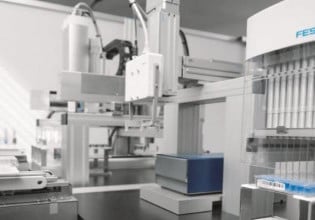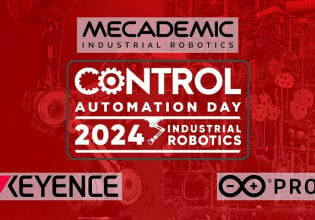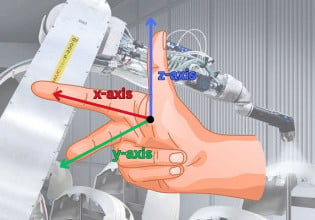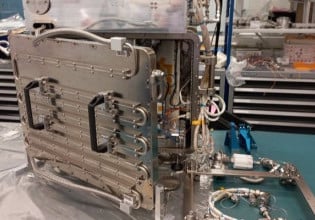M
I have been going through recent posts, in the light of this announcement and it has raised a number of concerns about the way this project has been 'run' from the start.
> AN ANNOUNCEMENT FROM THE LPLC TEAM
Who are the LPLC team?
My understanding was that this was a community effort. As such that makes everybody who has contributed, and by that I mean in the wider and more important sense of the word (i.e. not just code). As far as I can determine there has been no discussion amongst the general community so I can only guess that the definition of the word team does not encompass the wider meaning of all who have contributed to this project but only the self appointed elite.
The decision to move to Sourceforge is not a bad one. The way the decision has come about says too much about the way the project 'leadership' operates and thinks. I wish you luck, I take exclusion from any decision making process literally.
I am afraid I cannot raise the enthusiasm to explain myself fully but basically working (or not) with you guys has not enhanced the usefulness of Open Source/Community Development in my eyes one bit.
I did have ideas once upon a time, before my involvement in this project, that the formattion of virtual companies and e-project teams would be an interesting and exiting way to do business. I can see that most of us are not ready for it.
> Recently, there has been growing concern within the LinuxPLC
> project and in the wider community that our continued association
> with control.com may compromise our independent, open-source
> status.
Where has this concern been evident? Again I have seen no discussions, of course this doesn't mean there haven't been any just that I haven't seen
any.
Here are a few parting shots.
As a software engineer producing applications for machine and process control, the most important thing to me is that the PLCs that I use work out
of the box, accept my application and do what is intended.
How do you prove due dilligence, when you are suppliying a system that has numerous sub-components and systems (both hardware (including firmware) and software), each of which may be supplied from a different source and may
have been developed by diverse parties who have never met and whos where abouts may be unknown? How can you show due diligence on something when
there is no clear ownership of design?
In other words why should I use your 'product' if in the event that something goes wrong the buck will necessarily stop at me. How can I sue the
person who supplied a faulty piece of softyware if it is impossible to know who wrote it?
I think Linux heads should be able to make a great deal of capital out of Microsoft's new supply model.
I have one last thing to say. This is regarding OS wars.
Computers are only a tool. A very flexible, adaptable and exiting tool, but a tool none the less. They are only any use for what can be done with them. The important thing then is the data that is stored on the computer system and the applications that generate and manipulate that data. When are we going to remove our selves from the cul de sac where the most important thing to us is the operating system that we are running these applications on?
_______________________________________________
LinuxPLC mailing list
[email protected]
http://linuxplc.org/mailman/listinfo/linuxplc
> AN ANNOUNCEMENT FROM THE LPLC TEAM
Who are the LPLC team?
My understanding was that this was a community effort. As such that makes everybody who has contributed, and by that I mean in the wider and more important sense of the word (i.e. not just code). As far as I can determine there has been no discussion amongst the general community so I can only guess that the definition of the word team does not encompass the wider meaning of all who have contributed to this project but only the self appointed elite.
The decision to move to Sourceforge is not a bad one. The way the decision has come about says too much about the way the project 'leadership' operates and thinks. I wish you luck, I take exclusion from any decision making process literally.
I am afraid I cannot raise the enthusiasm to explain myself fully but basically working (or not) with you guys has not enhanced the usefulness of Open Source/Community Development in my eyes one bit.
I did have ideas once upon a time, before my involvement in this project, that the formattion of virtual companies and e-project teams would be an interesting and exiting way to do business. I can see that most of us are not ready for it.
> Recently, there has been growing concern within the LinuxPLC
> project and in the wider community that our continued association
> with control.com may compromise our independent, open-source
> status.
Where has this concern been evident? Again I have seen no discussions, of course this doesn't mean there haven't been any just that I haven't seen
any.
Here are a few parting shots.
As a software engineer producing applications for machine and process control, the most important thing to me is that the PLCs that I use work out
of the box, accept my application and do what is intended.
How do you prove due dilligence, when you are suppliying a system that has numerous sub-components and systems (both hardware (including firmware) and software), each of which may be supplied from a different source and may
have been developed by diverse parties who have never met and whos where abouts may be unknown? How can you show due diligence on something when
there is no clear ownership of design?
In other words why should I use your 'product' if in the event that something goes wrong the buck will necessarily stop at me. How can I sue the
person who supplied a faulty piece of softyware if it is impossible to know who wrote it?
I think Linux heads should be able to make a great deal of capital out of Microsoft's new supply model.
I have one last thing to say. This is regarding OS wars.
Computers are only a tool. A very flexible, adaptable and exiting tool, but a tool none the less. They are only any use for what can be done with them. The important thing then is the data that is stored on the computer system and the applications that generate and manipulate that data. When are we going to remove our selves from the cul de sac where the most important thing to us is the operating system that we are running these applications on?
_______________________________________________
LinuxPLC mailing list
[email protected]
http://linuxplc.org/mailman/listinfo/linuxplc






